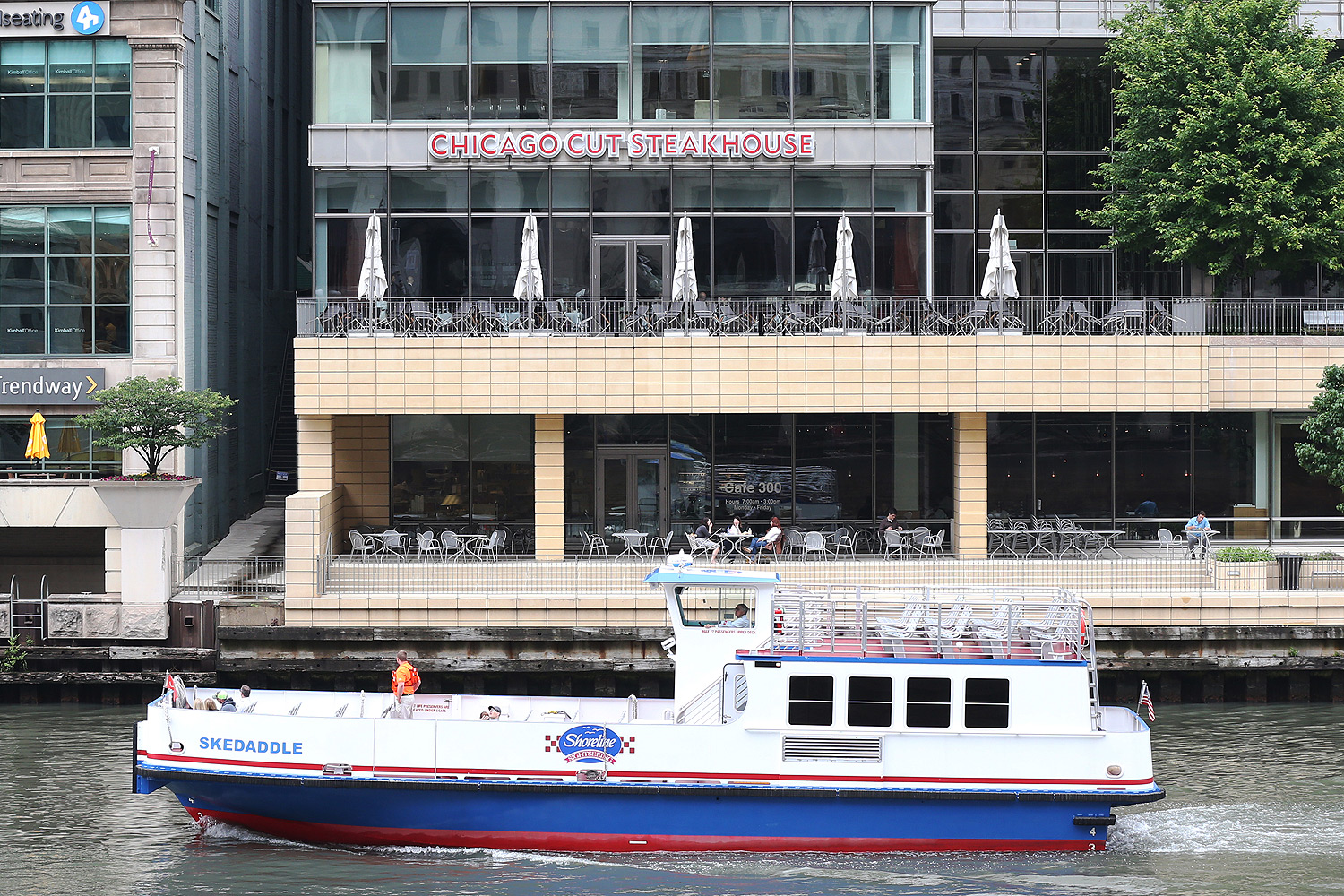Some investors in Chicago Cut Steakhouse have sued the restaurant’s primary owners for failing to disclose financial information.
The investors’ lawsuit in the Circuit Court of Cook County claims they have “repeatedly requested the right to inspect the books and records” of the company, but David Flom and Matthew Moore, who run the restaurant, “have refused without any justification to make those books and records available.”
Investors in the restaurant who have filed the suit include attorney Michael Forde, financial executives John Koutoupis and Frank Phillips, and real-estate executive Marc Defife (who lives in New York).
Forde, whose name appears as filing the suit, said the lawsuit speaks for itself. Moore declined to comment.
When it opened in 2010, Chicago Cut gained attention for its premier service, high-end steaks, and plenty of celebrity watching—Oprah even had a favorite booth. The restaurant also was notable for its ingenious business plan.
Flom and Moore, who had worked at other steakhouses in town, invited high-profile business leaders to become minority or passive investors. According to the court filing, those investors pulled together $3 million, which allowed Flom and Moore to open the restaurant. Those investors, in turn, got a 40 percent discount for dining at Chicago Cut and chatted up its attributes to their business clients.
On any given day you can see CEOs and civic leaders dining at the restaurant that overlooks the Chicago River. Some investors have been known to dine there for breakfast, lunch and dinner. (There are a few more than two dozen minority investors in Chicago Cut, but they don’t appear to know about the lawsuit.)
According to Restaurant Business Magazine, Chicago Cut was the fourth-busiest independent restaurant in Chicago in 2016, with $17.2 million in sales. The trade publication reported that only three independent restaurants in Chicago saw more in sales: Gibsons Bar & Steakhouse, which had $24.7 million in sales; Joe’s Seafood, Prime Steak & Stone Crab, $21.2 million; and Primehouse, $19.2 million.
Flom and Moore incorporated the same kind of business plan when they opened Ocean Cut three years ago. That restaurant, however, closed earlier this year. A source familiar with the fish restaurant said investors only got back three percent of what they invested.
The lawsuit against Chicago Cut’s management team says investors were given “very little information” about finances over the years. Typically, they provided “only a one-page ‘income statement’ that was prepared by an accounting firm… that has no idea as to whether the information is correct [because it is] relying on management for the figures presented.”
The lawsuit states investors have complained “from time to time” about wanting more information but were put off. The information never came, the lawsuit states, adding, “This failure to provide financial information has caused plaintiffs to be concerned about a the health of the business and the defendants’ good faith in managing it.”
Over the past month, Forde and Koutoupis have pushed for a meeting with Flom and Moore only to be put off time again, according to the lawsuit, which includes the email exchanges.
The investors’ lawsuit asks that Chicago Cut management produce the requested financial information and award them attorneys’ fees and costs for pursuing the lawsuit.



